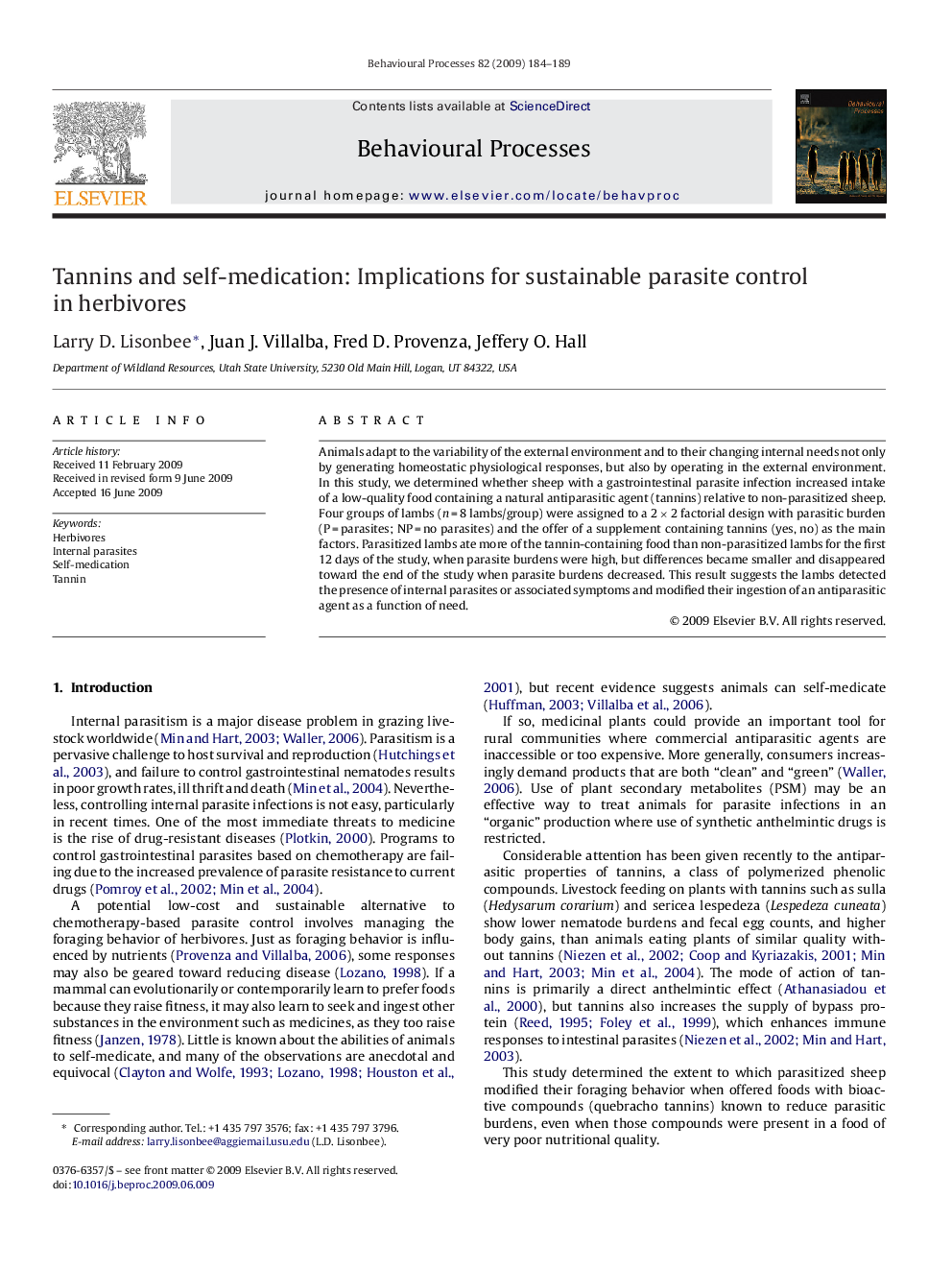| Article ID | Journal | Published Year | Pages | File Type |
|---|---|---|---|---|
| 2427528 | Behavioural Processes | 2009 | 6 Pages |
Animals adapt to the variability of the external environment and to their changing internal needs not only by generating homeostatic physiological responses, but also by operating in the external environment. In this study, we determined whether sheep with a gastrointestinal parasite infection increased intake of a low-quality food containing a natural antiparasitic agent (tannins) relative to non-parasitized sheep. Four groups of lambs (n = 8 lambs/group) were assigned to a 2 × 2 factorial design with parasitic burden (P = parasites; NP = no parasites) and the offer of a supplement containing tannins (yes, no) as the main factors. Parasitized lambs ate more of the tannin-containing food than non-parasitized lambs for the first 12 days of the study, when parasite burdens were high, but differences became smaller and disappeared toward the end of the study when parasite burdens decreased. This result suggests the lambs detected the presence of internal parasites or associated symptoms and modified their ingestion of an antiparasitic agent as a function of need.
